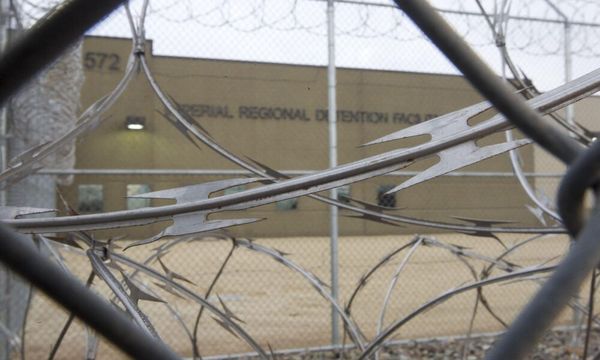
The mayor of Greater Manchester, Andy Burnham, is calling on the government to launch a public consultation over the way the king’s estate collects money from people who die with no will or next of kin, calling it “a bizarre remnant of feudal Britain”.
The mayor’s comments follow revelations by the Guardian that the Duchy of Lancaster has been secretly using the funds, known as bona vacantia, to renovate properties owned by the king and rented out for profit.
The estate, which raises “private” income for the monarch, collects the bona vacantia assets from residents of the ancient county palatinate of Lancashire – a territory that includes Greater Manchester, Lancashire and parts of Merseyside, Cheshire and Cumbria.
“I think many people in the north-west will be surprised to learn that the savings and assets of friends and neighbours are being taken in this way,” Burnham said in a statement. “I don’t recall this archaic system ever being explained to anyone here nor public consent for it being given.
“This appears to be a bizarre remnant of feudal Britain. While we await the public acts of levelling up that we have been promised, it seems this country still has silent mechanisms of levelling down at work, redistributing wealth in the wrong direction.”
Burnham added: “At the very least, people in the north-west are owed transparency and accountability. They should also have a say on how these proceeds are used. I would call on the government and the Duchy of Lancaster to initiate a public consultation on this issue to work towards a set of arrangements that could command greater public consent.”
Steve Rotheram, the mayor of the Liverpool city region, also expressed concern. “At a time when thousands of families in our region are trying to make ends meet amidst the cost of living crisis – and charities are taking most of the strain doing invaluable work helping those struggling to eat and keep the lights on – it appears millions of pounds that should have made its way to vulnerable people, is not,” he said.
“Worthy causes have been bypassed and instead it appears that funding has been spent renovating royal properties. I hope the situation will be clarified urgently and, if money has been misused, it is put back where it should be: with those charities it was promised to.”
Buckingham Palace has so far refused to comment on the controversy. However, Burnham’s comments are likely to put pressure on King Charles to comment on his estate’s use of bona vacantia funds. The king inherited the Duchy of Lancaster from his mother when he acceded to the throne last year.
Previously, as heir to the throne, Charles owned the Duchy of Cornwall, which collects bona vacantia funds from Cornish residents. That has now been passed to his son, Prince William. Both royal estates have long claimed that, after deducting costs, bona vacantia funds are donated to charities.
Over the last 10 years, the Duchy of Lancaster has collected more than £60m in these funds. However, only a small percentage is being given to charity. Internal duchy documents seen by the Guardian reveal how funds are secretly being used to finance the renovation of properties that are owned by the king and rented out for profit.
A leaked internal duchy policy from 2020 gave officials at the king’s estate licence to use bona vacantia funds on a broad array of its profit-generating portfolio. Codenamed “SA9”, the policy acknowledges spending the money in this way could result in an “incidental” benefit to the privy purse, the king’s personal income.
Friends of some of those whose assets were collected by the king’s estate have called the use of the funds in this way “unethical”, “shocking” and “a disgrace”. One of those whose assets were collected by the Duchy of Lancaster after no heir could be found was known personally to Burnham.
David Wells Greenhalgh died in hospital having had renal issues for most of his life. The Conservative leader of Bolton council and a former actor in the West End, he was a well-known figure locally. After he died, Greenhalgh’s friends raised money for Wythenshawe hospital in his honour. However, Greenhalgh’s £230,000 in assets were collected by the king’s estate.
Burnham spoke at Greenhalgh’s funeral in August 2021, describing him as “Bolton to a tee: warm, witty, kind, down to earth, David had it all”.
Responding to the Guardian’s investigation, a Duchy of Lancaster spokesperson said that when Charles acceded the throne, he “reaffirmed” his mother’s decision that bona vacantia money “should not benefit the privy purse, but should be used primarily to support local communities, protect the sustainability and biodiversity of the land and preserve public and historic properties across the Duchy of Lancaster estates. This includes the restoration and repair of qualifying buildings in order to protect and preserve them for future generations.”
The spokesperson added that before distributing bona vacantia to charities, the duchy allocated money to a late claims fund, in case of surviving relatives making future claims to their inheritance. “The cost of administering bona vacantia and any costs associated with the upkeep of public buildings and those of architectural importance, is also deducted.”






